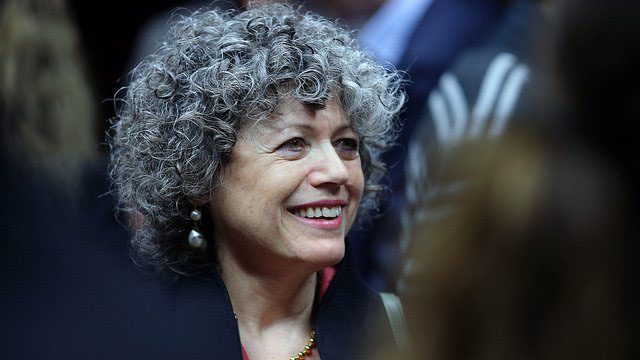Schmidt Co-Authors Op-Ed on ECB Secondary Objectives

Vivien Schmidt, Jean Monnet Professor of European Integration and Professor of International Relations and Political Science at the Frederick S. Pardee School of Global Studies at Boston University, co-authored an op-ed in Le Monde on the European Central Bank (ECB) and it’s secondary goals.
Along with Schmidt, the article, titled “La BCE devrait avoir un mandat politique clair qui expliciterait quels objectifs secondaires sont les plus pertinents pour l’UE” (The ECB should have a clear political mandate which would spell out which secondary objectives are most relevant for the EU), was penned by Grégory Claeys, Senior Fellow at Bruegel; Pervenche Berès, former member of the European Parliament; Nik de Boer, Professor of Constitutional and Administrative Law at the University of Amsterdam; Panicos Demetriades, Professor of Financial Economics at the University of Leicester; Sebastian Diessner, Visiting Fellow at the London School of Economics and Political Science’s European Institute; Stanislas Jourdan, Executive Director of Positive Money Europe; and Jens van’t Klooster, FWO Postdoctoral Fellow at the Hoger Instituut voor Wijsbegeerte of the KU Leuven.
The ECB’s primary goal is to achieve price stability; however, as it has yet to achieve this goal, it is now considering doing more. Left without guidance, the ECB will not take action; therefore, Schmidt and her co-authors argue that the ECB needs political guidance from the European Parliament and arguably the Council of the European Union (EU) to ensure that it does more with regard to its secondary objectives.
The full article can be read on Le Monde‘s website.
Vivien Schmidt is Professor of International Relations and Jean Monnet Professor of European Integration at the Frederick S. Pardee School of Global Studies and was the first Director of BU’s Center for the Study of Europe, housed at the Pardee School. Schmidt’s research focuses on European political economy, institutions, democracy, and political theory—in particular on the importance of ideas and discourse in political analysis. Read more about Professor Schmidt on her faculty profile.